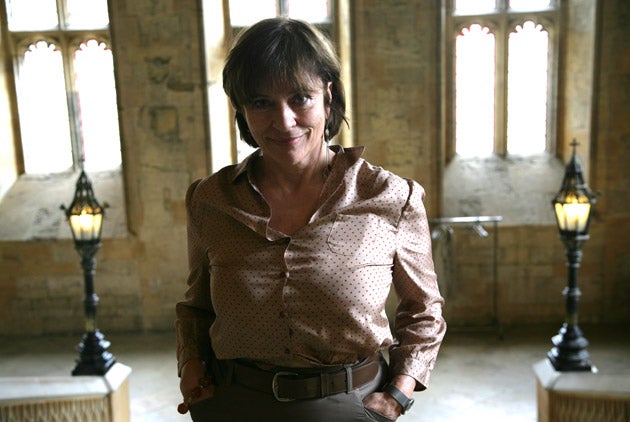Passed/Failed: An education in the life of the actress Diana Quick
'I ate a worm at nursery – and lived to tell the tale'

Your support helps us to tell the story
From reproductive rights to climate change to Big Tech, The Independent is on the ground when the story is developing. Whether it's investigating the financials of Elon Musk's pro-Trump PAC or producing our latest documentary, 'The A Word', which shines a light on the American women fighting for reproductive rights, we know how important it is to parse out the facts from the messaging.
At such a critical moment in US history, we need reporters on the ground. Your donation allows us to keep sending journalists to speak to both sides of the story.
The Independent is trusted by Americans across the entire political spectrum. And unlike many other quality news outlets, we choose not to lock Americans out of our reporting and analysis with paywalls. We believe quality journalism should be available to everyone, paid for by those who can afford it.
Your support makes all the difference.Diana Quick, 62, has just published her family memoir A Tug on the Thread. She plays the Queen in a forthcoming Channel 4 series and will be joining author Margaret Atwood for staged readings of The Year of the Flood at the Edinburgh Festival, Manchester Cathedral and St Paul's Church in Covent Garden.
It was probably at Miss Smith's, a kindergarten in Swanley, Kent, that one of the little boys challenged me to eat a worm – and I did. Then at six I went to St Margaret's, a preparatory school in Wilmington, run by a Mrs Smith: I went on a bus by myself. I was happy there. Then two years later we moved to Dartford and my mother said, as I was putting on my uniform in the morning, "Oh, you're going to have to go on two buses to St Margaret's." I refused, so I was sent to Wentworth County Primary, which I could walk to with my sister. This was more rough and tough. I asked a boy to open a window for me and everybody laughed because I said "please". I very quickly settled into it.
I got into The County Grammar School for Girls in Dartford. Miss Davies was my very inspiring English teacher who did school plays and took us to the National Youth Theatre. I didn't get on particularly well with the headmistress. We had written a silly play about St Trinian's and after O-levels – they expected everyone in the alpha stream to take 10 or 11 O-levels – the German teacher said we could use his classes to rehearse. The headmistress got word of this, forbade it and there was a mutiny.
Mary Davies tutored me for Oxbridge entrance a year early; I took the exam at 16 and got a scholarship to Lady Margaret Hall, Oxford.
LMH was rather like being at boarding school: men out by 10pm. The teaching was fine but very orthodox; you were encouraged to know the received view but no one asked what you thought; I'm sure this didn't happen at the men's colleges.
Just before my 19th birthday my father died of a heart attack. After the funeral I was back at university "tech-ing" and dress rehearsing a play that was to open in less than a week. And after the end of term I caught jaundice and turned bright yellow. I returned to college a term later.
A very dim view was taken of acting. Theoretically you could do two plays in three years. I was in The Crucible by Arthur Miller in my first term and went on to do quite a lot of plays under my own name and then under my middle names of Victoria Groves. I did some revue and cabaret with Michael Palin and Michael Sadler, my boyfriend. The college didn't suss me out until I was a postgraduate student.
I had got a 2.1 and was doing a B.Litt. I was doing a modern thesis but the exam was in medieval handwriting and there was one script I just couldn't understand. I was hauled over the coals by Dame Helen Gardener, Professor of English and Fellow of LMH: "Miss Quick, this won't do – but the palaeography tutor tells me you were excellent as Ophelia, so we've decided to give you another chance."
I was the [first woman] President of the Oxford University Dramatic Society in my first postgraduate year. In my second year I was earning £45 from Granada for two days work a week, instead of living on a £10 a week state studentship, and I left at Easter. I got into RADA. Hugh Crutwell, the Principal, said: "You won't be able to act professionally while you're here. "I thought, 'I'm not going to be a waitress when for the last 18 months I have been keeping myself by acting'." I left and went to Watford Palace Theatre, playing Helena in Look Back in Anger.
Join our commenting forum
Join thought-provoking conversations, follow other Independent readers and see their replies
Comments